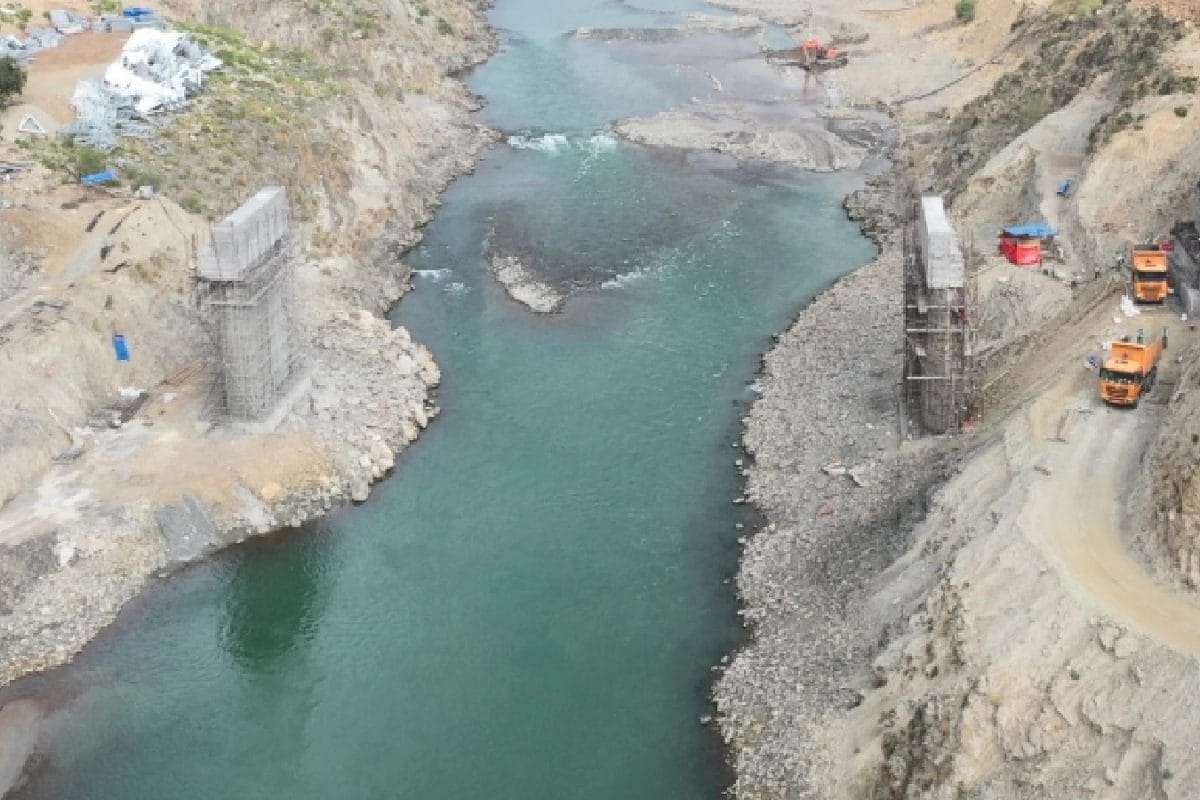

Amidst escalating tensions between India and Pakistan following India's suspension of the Indus Waters Treaty (IWT), China is reportedly accelerating the construction of dams in Pakistan, exacerbating concerns about water scarcity and regional stability. India's decision to suspend the 1960 treaty, a move prompted by a deadly militant attack in Kashmir, has raised serious concerns in Pakistan, a nation heavily reliant on the Indus River system for its agriculture and water supply.
The Indus Waters Treaty, brokered by the World Bank, has long been considered a cornerstone of regional cooperation, surviving multiple wars and diplomatic crises. It grants Pakistan access to the waters of the Indus, Jhelum, and Chenab rivers, while India controls the Ravi, Beas, and Sutlej rivers. However, India's recent actions have cast a shadow over the treaty's future, with potentially dire consequences for Pakistan's water security.
According to reports, India's suspension of the IWT could lead to a 21% water shortage in Pakistan during the early Kharif season, a critical period for agriculture. This shortage is attributed to decreased water releases by India from the Chenab River. With approximately 80% of Pakistan's cultivated land irrigated by the Indus system, the treaty holds immense importance for the nation's food security and economy. Reduced inflows from India could severely disrupt key crops like wheat, rice, and cotton, leading to lower yields and food insecurity.
In response to these developments, China, a major investor in Pakistan's hydroelectric power sector, has reportedly ramped up its efforts to construct dams in the region. The state-owned China Energy Engineering Corporation is said to be expediting work on the Mohmand Hydropower Project in Khyber Pakhtunkhwa province, a project scheduled for completion next year. This move underscores the growing strategic importance of water resources in the region, particularly in the context of heightened geopolitical tensions.
While India's actions have triggered alarm in Pakistan, experts note that India cannot immediately halt water flows due to the limitations imposed by the IWT, which restricts the construction of large storage dams. However, with the treaty in abeyance, India could potentially disregard restrictions on silt-flushing, releasing sediment from reservoirs and causing significant downstream damage. In the long term, India may be motivated to construct storage dams, further exacerbating the water crisis in Pakistan.
The situation is further complicated by existing water stresses in Pakistan, which are compounded by climate change, rising temperatures, droughts, and melting glaciers. Many Pakistanis already lack access to clean and reliable water sources, and any disruption to the country's water supply could have major impacts on agriculture and livelihoods.
As tensions escalate, Pakistan has warned of a "full force response" to any attempt by India to divert or block its share of water under the Indus Waters Treaty. The country is also reportedly considering legal action, including raising the issue at the World Bank. However, the lack of an active mediator and the complex geopolitical dynamics of the region make a resolution challenging.
The Indus water dispute also carries the risk of escalating into a broader conflict. Some analysts suggest that if India actively pursues a plan to disrupt Pakistan's water supplies, Pakistan might feel compelled to strike at Indian infrastructure.